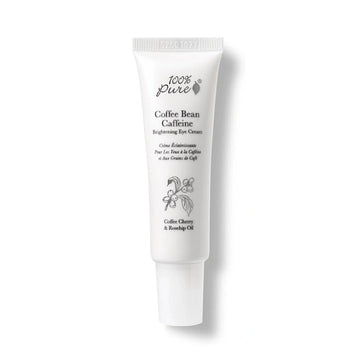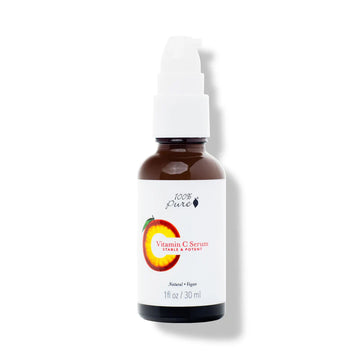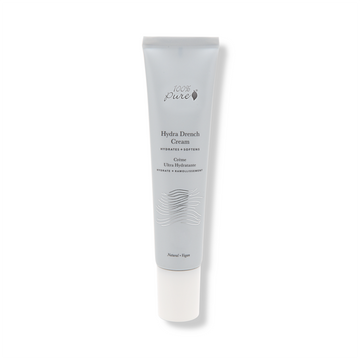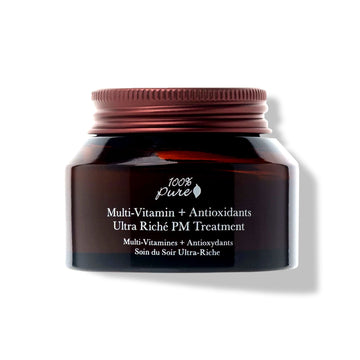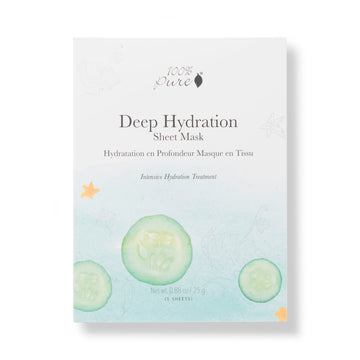Understanding Claims and Badges in the Clean Beauty Industry
Written by: 100% PURE®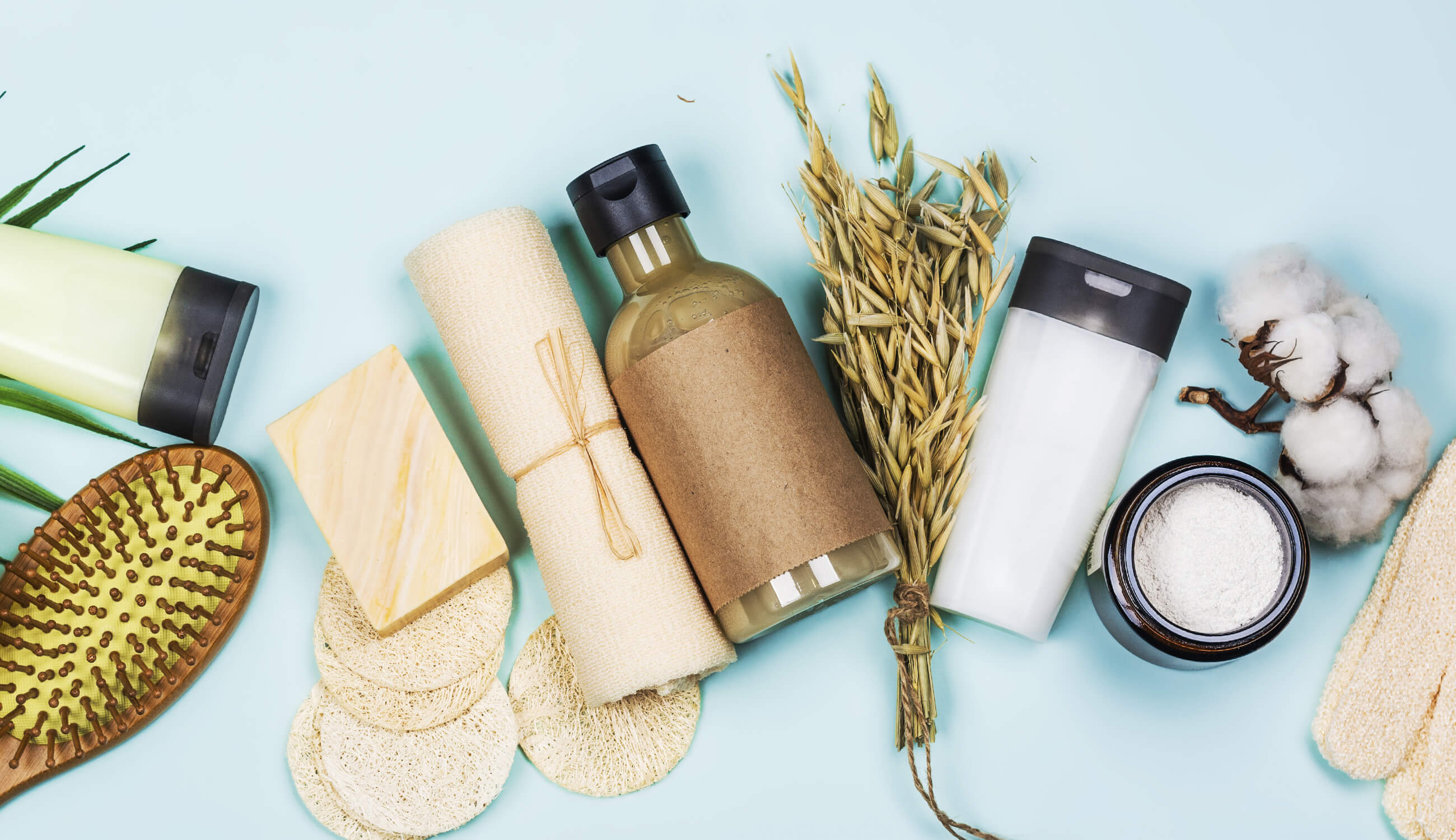
When a new clean beauty brand or product comes out, we want all the details. We want to know how good it is for our health, for the environment, and for animals. In other words, prioritizing toxin-free, sustainable, and cruelty-free options is our number one priority.
To differentiate between the good and the bad, we often turn to certifications to know what’s right for us. Labels are huge in the clean beauty industry: they come in the form of claims, badges, and seals.
Deciphering the many clean beauty certifications can feel like wading through a vast ocean. That’s why we’ve compiled the most important ones for you to know – plus some of our top cruelty-free products with the clean beauty stamp of approval — just thank us later!
Leaping Bunny
Leaping Bunny is perhaps the best recognized label for cruelty-free beauty. They conduct independent reviews of makeup, skin care, personal care, and household product brands globally.
This standard requires that absolutely NO animal testing be done at any stage of development. That means that neither the individual ingredients, the formula, or the finished product cannot be tested on animals. Furthermore, if a brand allows third-party companies to use animal testing, said brand can’t receive the Leaping Bunny certification.
PRO TIP: Remember to cross-check any cruelty-free labels you find through the Leaping Bunny database! Not all brands pay to use the Leaping Bunny logo on their products, so this database can help you locate each brand by name.
Beauty Without Bunnies
Beauty Without Bunnies (BWB) is PETA’s cruelty-free certification. Like Leaping Bunny, the BWB database includes global cosmetics, personal care, and household product companies.
Their process asks for companies to sign a statement verifying that they don’t use animal testing on the raw ingredients, formula, or final product (and that they won’t in the future). That means their suppliers cannot use animal testing on the ingredients they provide. Getting the BWB label is less rigorous because companies aren’t subject to any sort of review, but it’s still a label worth looking out for.
(Psst… 100% PURE is certified by both Leaping Bunny and Beauty Without Bunnies!)
Choose Cruelty Free
Choose Cruelty Free (CCF) is the Australian counterpart to Beauty Without Bunnies. The difference is that they investigate every aspect of the supply chain to ensure that every company involved in the process – from the suppliers to the parent company – doesn’t engage in animal testing.
This certification focuses on cosmetics, toiletries, and household cleaning products that are sold in Australia. Since selling these products in China often require animal testing, CCF chooses not to certify any brands that retail in China.
Note: 100% PURE™ can sell cruelty-free products in China by selling strictly online and using third-party warehouses in the U.S. for shipping. Read how we bypass this rule to provide cruelty-free products to consumers in China.

USDA Certified Organic
Any personal care product that includes agricultural ingredients can potentially use this certification. That means that even products with essential oils can also be Certified Organic, if they meet requirements.
A clean beauty product that is labelled Organic by the USDA must be at least 95% organic. Ingredients are organic when they are grown and made without synthetic pesticides or preservatives, GMOs, ionizing radiation, or other forbidden methods.
NSF Certified Organic
The NSF standard applies to personal care products, like soaps, that use non-agricultural ingredients and different manufacturing processes often. To get this certification, at least 70% of the product must be organic. You’ll usually see this in the form of labels such as “Contains Organic Ingredients” with specific percentages of 70% and above.
Biodynamic® / Demeter®
Demeter is the certifier for Biodynamic® products. This certification is used to identify eco-friendly farms and ranches, and is stricter than USDA Organic.
While this certification also meets the requirements for USDA Organic, they also focus on other aspects of sustainability. A farm or ranch must also promote soil fertility, biological diversity, crop protection, and humane animal welfare. That means no artificial chemical fertilizers or pesticides! However, products coming out of these farms or ranches must first meet Demeter’s Processing Standards to be considered Biodynamic.
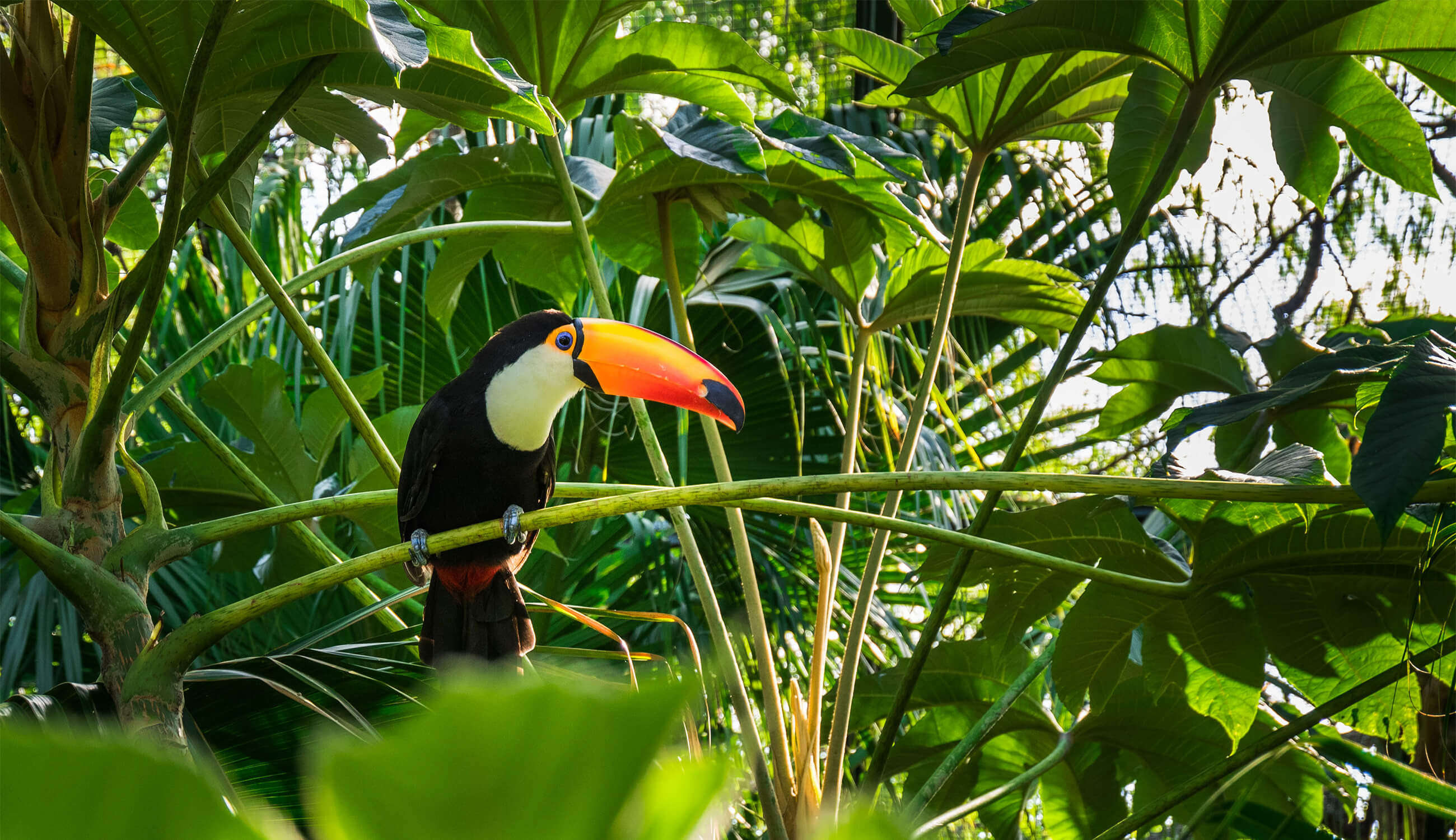
Rainforest Alliance
The Rainforest Alliance calls attention to delicate ecosystems facing threats like deforestation, while also protecting the rights of farmers and suppliers within these ecosystems.
Products bearing this seal are sourced and manufactured using sustainable practices that support a healthy symbiosis between human life and wildlife. Ingredients and products that meet this standard must undergo a rigorous auditing process. They must prove that they can protect the landscapes where farmers live and work, while also protecting local ecosystems and wildlife.
COSMOS / Ecocert
COSMOS refers to the COSMetic Organic and natural Standard, set by the sustainable certification group Ecocert. As you can tell by the name, COSMOS certifies natural and organic cosmetics worldwide.
There are two different labels: COSMOS APPROVED and COSMOS CERTIFIED. Organic ingredients are COSMOS CERTIFIED and raw materials are COSMOS APPROVED. To meet these standards, a product must use eco-conscious production, health-conscious production, no petroleum-derived chemicals, no GMOs, and recyclable packaging.
Fair for Life
Fair for Life is another Ecocert certification, but it pertains to the treatment and payment of human workers. This label can apply to raw agricultural products, cosmetics, and handicrafts (among other categories).
Unfortunately, it is common for many beauty brands to use ingredients or products that unfairly exploit the labor of workers; particularly in poor or developing countries. This certification requires that workers receive a fair price for their goods, work in decent and safe conditions, and use environmentally friendly farming practices.
Third-party certifiers provide independent reviews of a product’s supply chain and production process. Unlike companies who self-assign their labels, we can more readily trust third-party certifiers because they’re autonomous organizations with strict standards.
Besides the fact that their labels come from an unbiased place, these clean beauty certifiers:
#1: Help Educate Consumers
Their standards address issues with the way we’re currently handling sustainability and ethics in the beauty space. They inform consumers about the ways clean beauty does things differently in that department and why, therefore, clean beauty is the superior choice.
#2: Shed Light on Toxic Beauty Practices
These certifications essentially act as signifiers against conventional beauty companies. They actively fight to inform consumers about inhumane or unsafe beauty practices that were previously shrouded in mystery.
#3: Separate the Real from the Wannabes
Clean beauty is a popular category today. That’s why so many brands have decided to jump on the bandwagon and adopt the clean beauty labels (and hype). But to verify those claims officially costs time and effort — and not all brands will meet the strict standards.
Note: Certification approval can also cost a lot of money, making it difficult for smaller clean beauty brands to obtain them. Ask brands you love directly if their products meet specific criteria that is important to you.
Reading about every beauty certification under the sun can be dizzying. There are so many certifications for just about every facet of clean beauty. Environmental sustainability, organic certifications, fair treatment of workers, and humane animal treatment each have their own labels.
Not to mention, there are plenty of generic logos made to look like official certifications. Keeping track of how official logos look can be confusing and difficult. Some brands may exclude the logo altogether, which requires digging into a database.
Every cosmetic or skin care product you like won’t include all the labels, either. Some smaller clean beauty brands simply can’t afford certifications or to pay to use a logo.
Our suggestion? Start small. You don’t need to go out and replace all your current beauty products right away. When one of your products runs out, take the time to research and decide on a more ethical, sustainable option.
Straight from mother nature, 100% PURE’s natural skincare are exactly that – pure, simple, and effective. You’ll be saying no to harmful chemicals, artificial fragrances, harsh toxins, and harmful testing and manufacturing practices.
When you make the switch to our clean beauty, you’ll have peace of mind knowing it’s healthy for your skin and health, it’s good for the environment, and for animals. In other words, prioritizing cruelty- free, ethical, sustainable, and health-conscious beauty choices is our top priority.
Without further ado, here are a few of our top skincare products with the clean beauty stamp of approval. We have a few day goodies, and a few nighttime ones to round out your best skincare routine!
The proof is in the numbers - not to mention the clinical studies! The cult-like following and 5-star
reviews of our caffeinated eye cream will have you batting an eye. As our #1 bestseller, this eye-dilic
cream features luxe ingredients like moisturizing rosehip oil, stimulating caffeine from coffee and green
tea, and toning vitamin C keep that perks up tired eyes in no time!
This natural vitamin C serum is a powerhouse in promoting collagen production, which is essential for
maintaining skin’s elasticity and firmness. The infusion of green apple and grape enhances the skin’s
radiance, while the addition of alpha lipoic acid (ALA) acts as a shield against oxidative damage;
a common culprit for premature skin aging and discoloration.
Thirsty skin cells are in for a treat with our skin-hydrating dream cream! This lightweight, fast-acting
moisturizer offer the benefits of hyaluronic acid, and the soothing benefits of omega fatty acids from
chia seed gel. This soothing moisturizer is also loaded with protective antioxidants, thanks to nopal
cactus and rose water. The addition of sodium PCA and shea butter condition and soften the skin.
Multi-Vitamin + Antioxidants Ultra Riché PM Treatment:
This nighttime facial treatment was made especially for anyone seeking corrective anti-aging treatment.
We stabilized the best vitamins for skin while combining potent antioxidants, to work synergistically
while providing a drastic improvement in the appearance of fine lines and wrinkles. This luxurious night cream is formulated with correcting vitamin C and reparative vitamin A to combat daily damage of the skin, while it softens and moisturizes, and restores youthful suppleness and glow.
The powerful replenishing sheet mask is made with hydrating cucumber and aloe juice, skin-plumping
hyaluronic acid, and plant ceramides to quench your skin. This water-drenching blend of botanicals locks
in long-lasting hydration to leave skin ultra-plump, soft, and supple. Anti-inflammatory rosehip, ylang
ylang, and chamomile help to calm the skin, while beta glucan soothes and moisturizes.
While we’ve compiled all the most important certifications in one place, we know that getting through all those labels takes a while (and a half)! But taking that extra step to check if your product is eco-friendly and people-conscious is important. We must put our money towards brands making changes for the better – maybe the rest of the world will follow the trend!
What are the main differences between the Leaping Bunny, Beauty Without Bunnies, and Choose Cruelty Free certifications?
The Leaping Bunny program certifies that companies have made a commitment to not test on animals at any stage of product development. Beauty Without Bunnies program certifies that companies meet strict criteria for not using animal-derived ingredients or testing on animals. The Choose Cruelty Free organization certifies cruelty-free products and maintains a list of approved companies.
How does a product qualify for the USDA Certified Organic or NSF Certified Organic labels?
The USDA Certified Organic labels must be at least 95% organic. Ingredients are organic when they are grown and made without synthetic pesticides or preservatives, GMOs, ionizing radiation, or other forbidden methods.
The NSF Certified Organic labels applies to personal care products, like soaps, that use non-agricultural ingredients and different manufacturing processes often. To get this certification, at least 70% of the product must be organic.
What does the Biodynamic/Demeter certification entail, and how does it differ from USDA Organic?
The Biodynamic/Demeter certification meets the USDA Organic requirements, but where it differs is it’s stricter in its certification process. The Biodynamic/Demeter certification focuses on other aspects of sustainability. A farm or ranch must also promote soil fertility, biological diversity, crop protection, and humane animal welfare. That means no artificial chemical fertilizers or pesticides! However, products coming out of these farms or ranches must first meet Demeter’s Processing Standards to be considered Biodynamic.
How do certifications like Rainforest Alliance and COSMOS/Ecocert contribute to sustainability and ethical practices in the beauty industry?
The Rainforest Alliance contributes to sustainability and ethical practices by calling attention to delicate ecosystems facing threats like deforestation, while also protecting the rights of farmers and suppliers within these ecosystems.
Products bearing the Rainforest Alliance seal are sourced and manufactured using sustainable practices that support a healthy symbiosis between human life and wildlife. Ingredients and products that meet this standard must undergo a rigorous auditing process. They must prove that they can protect the landscapes where farmers live and work, while also protecting local ecosystems and wildlife.
To meet the COSMOS/Ecocert standards, a product must use eco-conscious production, health-conscious production, no petroleum-derived chemicals, no GMOs, and recyclable packaging. The COSMOS-standard defines the criteria that companies must meet to ensure consumers that their products are genuine organic or natural cosmetics produced to the highest feasible sustainability practices.
- Tags: Bath Body Hair, Clean Living, Guides, make up, Makeup, March-2024, Shopping Guides, Skin Care, skincare
We carefully hand-select products based on strict purity standards, and only recommend products we feel meet this criteria. 100% PURE™ may earn a small commission for products purchased through affiliate links.
The information in this article is for educational use, and not intended to substitute professional medical advice, diagnosis, or treatment and should not be used as such.
















